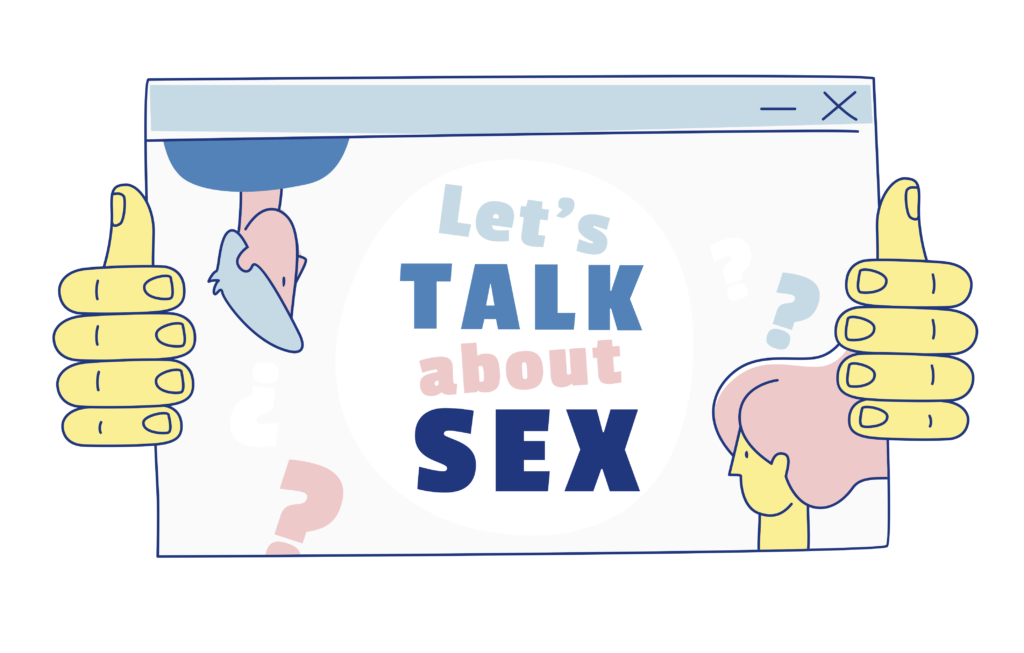Sexology Services

Our Sexology team is led by a qualified and registered psychosexual therapist and sexual health educator. Our team provide a holistic, person-centred approach to any sexual health issues clients may have. Footsteps Community Services is a sex positive and LGBTQI+ friendly therapeutic practice.
Sex-positive means our sexology team is comfortable with talking about all things sex, sexual health, and intimacy. LGBTQI+ friendly means that no matter your sex, gender or chromosomes, our sexology team will provide a non-judgemental, supportive environment to explore any issues in this area. Our sexology team’s specialist skills provide the knowledge required to work in the areas of sexual health and education.
Sex-positive does not include any physical contact. Footsteps Community Services have very strong boundaries and will educate any clients who do not understand this approach.
At Footsteps Community Services the following sexology services are available both in an outreach capacity or in one of the offices available at Woodhill or Acacia Ridge:
- Individual sexual health counselling and/or education-based therapeutic sessions.
- Psychosexual therapy.
- Sexual health workshops for people with disabilities.
Individual sexual health counselling and/or education-based therapeutic services
These therapeutic services provide one to one therapeutic support for people with issues around sexual health, sexual behaviours, personal hygiene, reproductive health, relationship issues and lack of sexual health education. Relationship issues can include sexual and non-sexual relationships, sexuality, sexual function, boundaries, and communication issues. Sexual health counselling is a short-term service based around education and reconciliation of minor sexual health issues.
Psychosexual Therapy
Psychosexual Therapy is an in-depth, longer-term process than sexual health counselling. Psychosexual therapy includes the same supports as sexual health counselling and education-based therapeutic services while also including support for clients to build their capacity where there are issues including gender dysphoria, gender questioning, issues affecting their sex life such as long-term sexual functioning issues, atypical sexual behaviours, understanding how their disability impacts their sex life and schema therapy to support the client to form new and healthy values that support the client’s capacity to have a functioning sex life.
Sexual health workshop for people with disabilities
Workshops are a great way to normalise issues and provide information, especially when so often the topic of sexual health is so sensitive, if not, ignored. These workshops can be done in a group setting or individual setting and are tailored to the client’s cognitive level.
The comprehensive sexual health workshop covers areas such as sexuality, gender, consent, assertive skills, sexual and non-sexual relationships, safer sex practices, reproductive health, self-care, sexual function, boundaries, personal safety, private versus public body parts and masturbation.
The importance of sexual health support for people with disabilities
Research shows that globally, sexuality development for people with a disability (PWD) is the same as a person with typical development (PTD). Yet PWD are often neglected when the topic of sexuality appears in every-day life and in education settings.
The World Association for Sexual Health have set out a declaration of sexual rights that describe sexuality as an integral part of being human. The successful development of the sexuality is dependent on one’s ability to fulfil basic needs such as intimacy, desire, contact with others and love. For this to be possible, sexual rights for all should be upheld equally along with basic human rights. This includes the right to freedom of sexuality; sexual autonomy and safe sexual experiences; sexual privacy; access to comprehensive sexual health education; and access to sexual health services including contraception and abortion.
Historically, PWD have been pathologized, discriminated against and stigmatized as being less than those with typical development. However, sexuality develops for all people, from birth through to death. The implication that people with disabilities have no sexuality or concerns about sexual health can be damaging, especially for PWD. Research indicates that sexuality development for PWD is the equivalent of PTD. However, research also indicates that PWD have a greater need for sexual health promotion, and that need is often unfulfilled. In fact, PWD, especially those with co-occurring disabilities, are more likely to be victims of sexual abuse. PWD are also more likely than PTD to have STIs and unwanted pregnancies. This highlights the urgent need for PWD to have attainment of their sexual rights including comprehensive sexual health promotion that can provide sexuality education and sexual abuse prevention.
The Queensland Sexual Health Promotion Strategy 2016-2021 outlines the importance of comprehensive sexual health education. This health promotion strategy highlights the stigmatization and discrimination around sexual health and the importance of a community-wide approach to overcoming these. This strategy uses the vision that “all Queenslanders experience optimal sexual and reproductive health”. Specifically, for PWD the strategy outlines the optimal approach is one that is comprehensive, gives the PWD choice and control and is ongoing across their lifespan.
